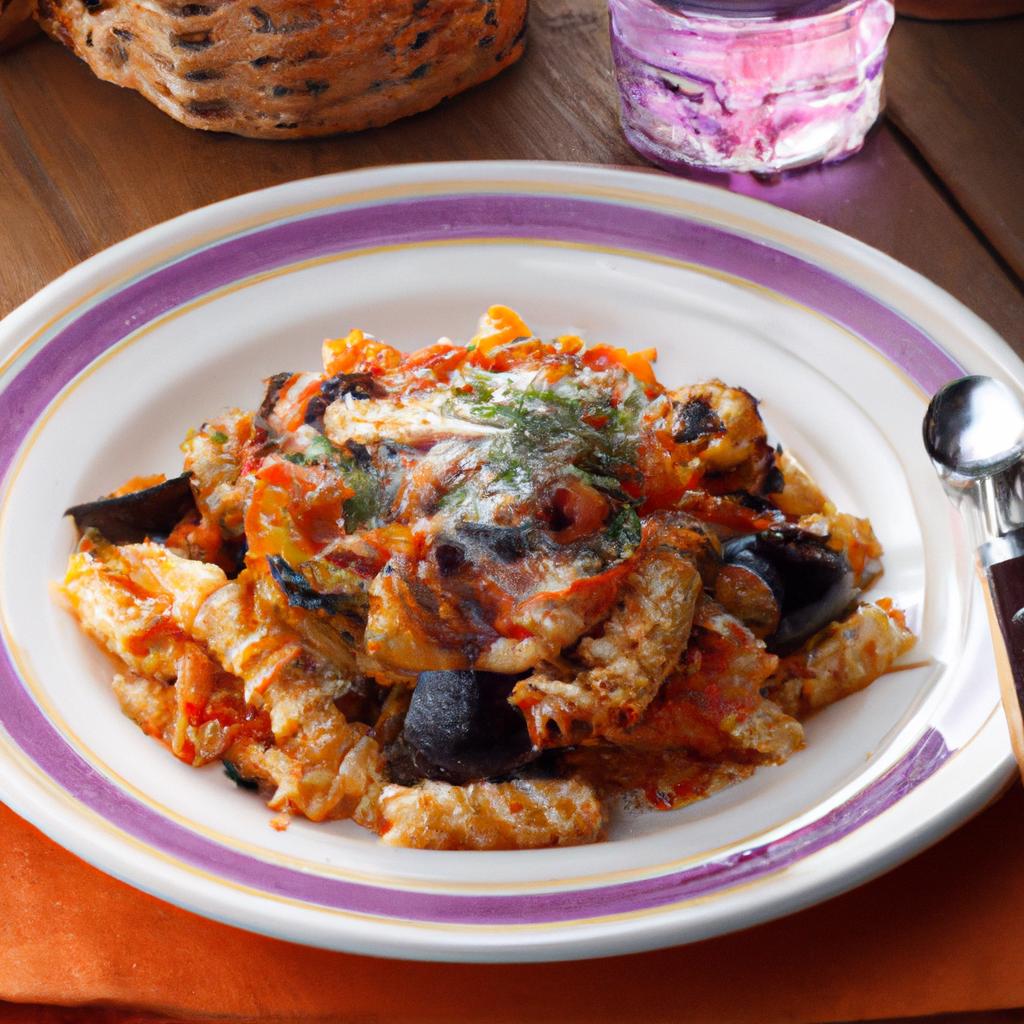Pasta alla norma

Italian cuisine is widely known around the world for its rich and flavorful dishes. From pizzas to pasta, Italian dishes have captured the hearts and taste buds of food lovers everywhere. One pasta dish that stands out is the Pasta alla Norma which has its origins from the island of Sicily in Southern Italy. This dish is made using a few basic ingredients, but the end result is something that is both tasty and wholesome.
Pasta alla Norma is a classic Sicilian dish that is considered a staple in most households. It’s named after the famous opera “Norma” by Vincenzo Bellini, who was a native of the island. The dish combines the flavors of eggplant, tomatoes, and ricotta cheese which creates a delicious blend of savory and sweet flavors. The dish is simple, yet sophisticated and can be found in many Italian restaurants worldwide.
The beauty of Pasta alla Norma is its simplicity. The dish is made using just a few basic ingredients but requires a bit of patience and attention. The key ingredient is eggplant, which is locally known as ‘melanzane’ in Italy. This vegetable is also a staple in Southern Italian cuisine, and it can be prepared in various ways. However, for Pasta alla Norma, it’s best to roast the eggplant before adding it to the pasta. This gives the eggplant a smoky and savory taste that complements the pasta well.
The next key ingredient is the tomato sauce which is also a staple in most Italian households. The sauce is made from fresh tomatoes that are slowly cooked until they’re soft and tender. This creates a rich and flavorful sauce that is used to coat the pasta. The ricotta cheese is another essential element in this dish. It’s traditionally used as a garnish, and it provides a creamy and tangy flavor which balances the sweetness of the tomatoes and the savory taste of the eggplant.
The pasta used in this recipe is usually spaghetti or penne, but any pasta shape could work. The pasta is cooked al-dente and then added to the tomato sauce. Once the pasta is coated evenly, the roasted eggplant is added, and the dish is mixed well. The pasta and the eggplant should be mixed gently so that it retains its shape and doesn’t become mushy.
Finally, the dish is topped off with a generous dollop of ricotta cheese, and it’s ready to serve. It’s worth noting that this dish can also be prepared in a vegan or vegetarian version by simply leaving out the ricotta cheese or using a vegan substitute.
In conclusion, Pasta alla Norma is a classic Sicilian dish that has captured the hearts and taste buds of many Italian cuisine lovers worldwide. This dish is simple yet sophisticated, and it’s the perfect example of how basic ingredients can create a flavorful and wholesome dish. The dish is easy to prepare, and it’s perfect for a weeknight dinner or a special occasion. Next time you’re in the mood for some authentic Italian pasta, try Pasta alla Norma, and you won’t be disappointed.
Ingredients:
-1 lb of pasta -1 can of tomato puree -2 cloves of garlic, minced -1 large eggplant, peeled and cut into small pieces -1/2 cup of olive oil -1/2 teaspoon dried basil -1/2 teaspoon red pepper flakes (optional) -Salt and pepper to taste -1/2 cup of grated ricotta salata cheese
Instructions:
-
Preheat the oven to 375F.
-
In a large skillet, heat the olive oil over medium heat. Add the garlic and sauté for about 30 seconds, until fragrant.
-
Add the eggplant to the skillet and cook for about 10 minutes until the eggplant is browned and softened.
-
Add the tomato puree, basil, red pepper flakes, salt and pepper to the skillet. Mix well and let the sauce simmer for about 10 minutes.
-
While the sauce is simmering, cook the pasta according to the package instructions until al dente.
-
Drain the pasta and add it to the skillet. Mix well so the pasta is coated with the sauce.
-
Pour the pasta mixture into a baking dish and sprinkle with the grated ricotta salata cheese.
-
Bake in the preheated oven for about 15 minutes, until the cheese is melted and bubbly.
-
Serve hot and garnish with additional grated cheese and fresh basil, if desired.